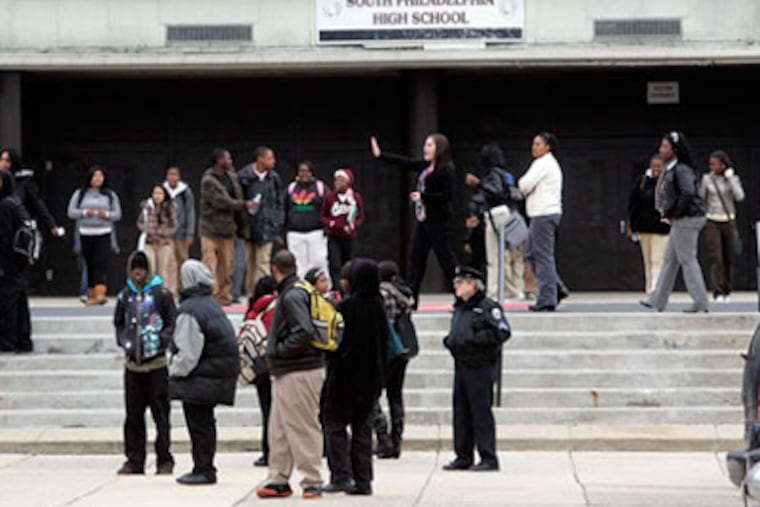African and Caribbean students often target of bullying, activist tells city panel
A growing population of African and Caribbean immigrant students in Southwest Philadelphia is often the target of racial teasing and violence in city public schools, a community activist told city officials Tuesday.

A growing population of African and Caribbean immigrant students in Southwest Philadelphia is often the target of racial teasing and violence in city public schools, a community activist told city officials Tuesday.
As an immigrant from Sierra Leone 30 years ago, Carol Bangura was teased and targeted, labeled a behavior problem, and kicked out of several schools.
"A lot of what the kids are experiencing now, I experienced years ago," Bangura said in testimony before the Philadelphia Commission on Human Relations. "It's time to stop."
The commission Tuesday held the 10th in a series of hearings on intergroup tension and violence in city schools. The meetings were prompted by racial violence at South Philadelphia High.
After the hearings, the commission will present a report to the district highlighting not just trouble spots, but also best practices.
Bangura said that while the Philadelphia School District had been cooperative and met with her on several occasions, violence against African and Caribbean students was still a problem. Students are picked on because of their accents, clothes, or even the way they smell, and little is done about it, according to Bangura.
Bullying, Bangura said, occurs every day, even in elementary school.
"There's a lot of physical violence, especially in the older kids," said Bangura, who runs the African Center for Education and Sustainability, a nonprofit that works with African students in Southwest Philadelphia.
The plight of African and Caribbean immigrant students is particularly tough because some come to the United States speaking English, and so don't qualify for special services. And because their skin is black, they get lumped in with the district's African American students, so it's tough to quantify them.
"These students, new immigrants, are left to sink or swim on their own," she said. "They're not given any services to get acclimated to a new educational system."
Still, Bangura said the district lately has been "very receptive" to the issues and is more aware of the problem.
The district recently hired a staffer who speaks multiple African dialects and French to work in the Southwest area. And Lucy Feria, deputy chief of multilingual curriculum and programs, said that the district is "much closer to looking to add" services such as tutoring, cultural sensitivity for teachers, and workshops for parents of African and Caribbean students.
Len Rieser, executive director of the nonprofit Education Law Center, said that in terms of language access services, "some schools do it well and some schools don't do it well. The struggle has been to create uniformity."
In the last few years, Rieser said, "I think they're concerned about language access, and they've taken some good steps recently."
Contact staff writer Kristen Graham at 215-854-5146 or kgraham@phillynews.com.